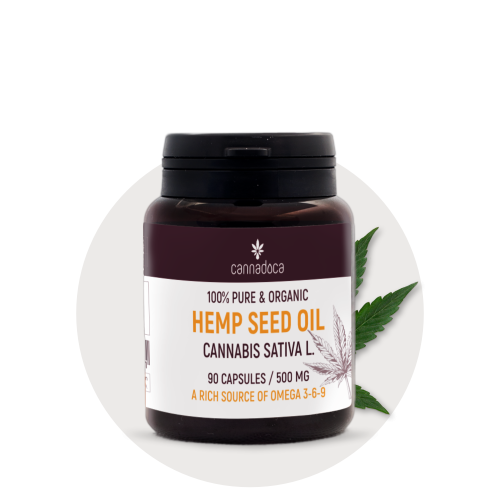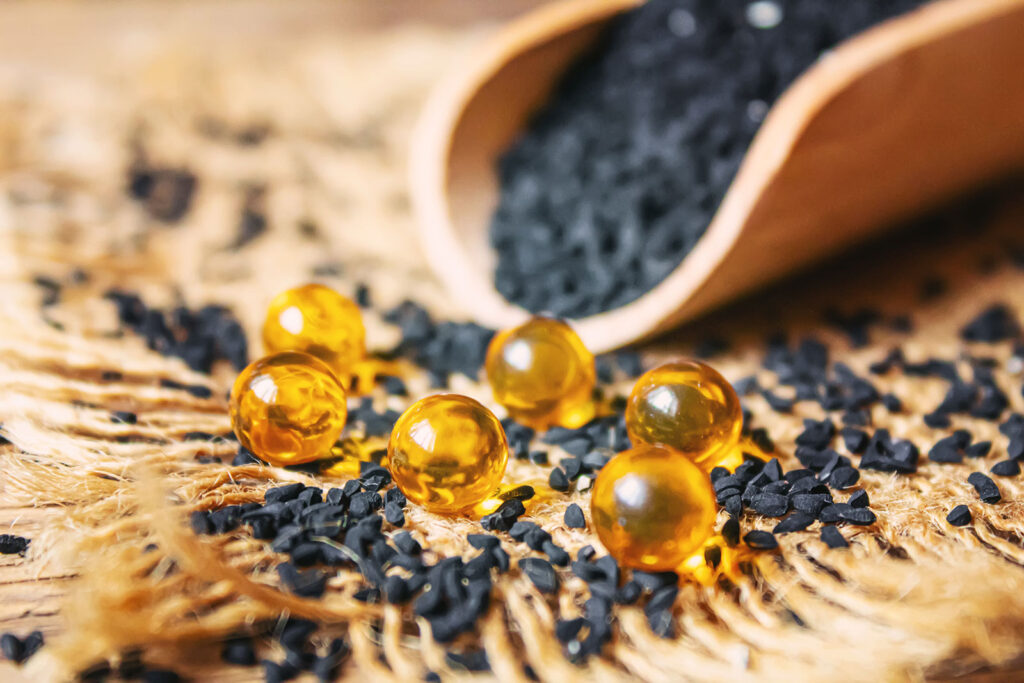
How to Balance Omega 3-6-9 Ratio – Without a Balancing Act
It’s common knowledge that omega fatty acids are good for our health. But when it comes to Omega 3-6-9, there are differences. But what are they?
It’s also important to make sure you’re not only getting enough, but the right amount. You need to make sure that the ratio is right.
Getting the right amount of omega-3-6-9 should be as easy as 1-2-3. It’s easy to learn how to do it.
What Are Omega Fatty Acids?
For starters: What are Omega fatty acids, and why are they so essential?
Omega fatty acids make our bodies run like a well-oiled machine. They’re called essential fatty acids because our bodies need them to function. But it’s especially important to get omega-3 and omega-6 fatty acids from food or supplements because your body can’t make them. It’s important to get the balance right.
When you hear about the health benefits of foods like salmon, avocados and almonds, it is the omega fatty acids that do the heavy lifting in keeping us strong, healthy and thriving.

Nuts and seeds are well-known for being an excellent source of Omega-3 and Omega-6 oils, in sources like flax seeds, sunflower seeds, and hemp seeds.

How to Balance the Omega 3-6-9 Ratio – and Why Hemp Seed Oil Is a Good Option
Increasingly, medical and health professionals have pointed to the significant benefits of hemp seed oil capsules – dosages have a 1:3 Omega-3 and Omega-6 ratio, which is ideal for our health.
Hemp seed oil has linoleic acid, alpha-linolenic acid, and gamma-linolenic acid, which are powerful weapons against health conditions like heart disease.
How Essential Fatty Acids Keep the Body Running
If your body is like a car, essential fatty acids are like the engine oil that keeps it all running smoothly. They make sure the components are in clean working order, and that everything works like it’s supposed to. Omega fatty acids make up our cell walls and help cells do their functions, including in the expression of genes and brain function.
For anything that your body’s cells do for growth or to sustain your body, essential fatty acids are involved. Especially for important functions like brain development, heart health, and autoimmune diseases, these essential fatty acids are crucial.
Omega 3-6-9 Similarities: What They Have in Common
So what are there three Omega fatty acids? First, let’s talk about what all three have in common.
Omega-3, Omega-6, and Omega-9 are all necessary for our bodies to function. For Omega-3 and Omega-6, they’re found in specific foods or supplements.
For Omega-9, your body makes it on its own, so you don’t need extra from food or supplements.

Omega 3-6-9 Differences: What’s Different About Them
What they don’t have in common is that we need different amounts of each. Like every component of your diet, there is such a thing as too much, and with Omega fatty acids, it’s all about balance. Right now, Americans have too much Omega-6 in their diet and not enough Omega-3. The ideal ratio is 3:1 – but, currently, most Americans and Europeans consume a ratio that’s closer to 20:1. Omega-9 fatty acids are not essential to get from supplements or foods.
The Goldilocks Ratio: How to Get the Balance Just Right
A balanced diet isn’t just something you hear about in cereal commercials. We all know the body is a carefully calibrated machine. What we put into our bodies needs to be carefully calibrated as well.
A good ratio of Omega-6 to Omega-3 fatty acids, according to medical sources, is about 3:1 for a typical European diet. Because most European diets are high in processed vegetable oils, we often consume more Omega-6 fatty acids than we need, which can lead to detrimental health effects.
A whole range of healthy foods can help optimize your daily Omega fatty acid intake. Supplements, like hemp seed oil, can help by taking out the guesswork about the right proportions and the sources for them.
Because the Western diet is high in Omega-6 acids, focusing on increasing Omega-3s is a critically important step for achieving better wellness and better health.
Food or Supplements? Both.
In research from the Mayo Clinic that looked at dozens of studies on essential fatty acids, doctors found a common theme: that people’s intake of essential fatty acids is almost universally insufficient.
This consistency in our inconsistent consumption means that we should do our best to get all of the essential fatty acids we can from food, but to rely on supplements to make up the difference, as we’re chronically falling short of our nutritional needs as a society.
The benefit of supplements is that you can know day-to-day, week-to-week that you’re getting what you need in the right balance. It takes out the guesswork of knowing whether you’re meeting your nutritional requirements.
Foods That Contain Omega Fats

Omega-3 Rich Foods:
-Fish, fish, and more fish. Mackerel, anchovies, salmon, sardines, oysters, and more.
-Seeds, like flaxseeds or hemp seeds.
-Nuts and seeds, like flaxseed.
-Cruciferous vegetables like broccoli, spinach, and cauliflower.
-Omega-3 enriched foods, like eggs.
-Chia seeds
Omega-6 Rich Foods:
-Nuts, especially walnuts, but also pine nuts, almonds, and cashews.
-Peanut butter and other nut butters.
-Avocados and avocado oil.
-Sunflower seeds.
Some Benefits of Omega Fatty Acids, According to Research:
Essential functions like the heart, lungs, and kidneys:
Essential fatty acids sustain and improve overall health in all systems of the body, especially for the essential life functions. We need them for heart function, hormonal regulation, blood clot formation, and healthy liver function.
Brain function and development:
Our brain is powered by fats, and essential fatty acids promote brain health. It’s essential for brain development in utero, and it’s an important part of mental wellness. Researchers have done studies on the effects of aging in the brain.
Beauty:
Essential fatty acids help inside and out, with effects that are invisible and effects that you can see. It keeps hair and nails strong, and it helps with production of skin cells to keep you looking refreshed.
Anti-cancer properties:
The right intake of essential fatty acids has been shown to have protective qualities against certain types of cancer, especially prostate cancer and breast cancer.
Inflammation and immune function:
The right balance of essential fatty acids can curb inflammation, the body’s physical process of having an immune response. Inflammation can affect any part of the body, and autoimmune diseases surface in the form of an increased inflammatory response. This means that anti-inflammatory properties can benefit people with a wide range of disorders, such as rheumatoid arthritis, lupus, and multiple sclerosis.
Pregnancy and maternal health:
Essential fatty acids are especially important during pregnancy to ensure fetal development and maternal health. It’s especially important for people who are pregnant to get the optimal proportion of Omega-3 and Omega-6 fatty acids for fetal brain development.
Energy and overall wellness:
Because essential fatty acids play an important role in all aspects of cell function, they’re vital in making sure we have enough energy throughout the day for everything we need to take care of. Having the right nutrition is essential in preventing fatigue
Hemp Seed Oil Capsules: Dosages and Daily Amounts
If you’re taking hemp seed oil capsules, how much should you take in a day to make sure you’re getting the best amount for your health?
Three tablespoons daily is an amount that can ensure you get sufficient Omegas in the right ratio, and you can either drink it directly or mix it into food, like salad dressing.
If you decide taking hemp seed oil capsules: take 1-3 capsules per day.
Fitting Essential Fatty Acids Into Your Diet – No Matter the Diet
No matter what you can or can’t eat, everyone needs essential fatty acids to live. Some diets make it easier than others, but it doesn’t have to be hard for anyone.
If you’re vegan, you can get essential fatty acids from seeds, nuts, soybeans, and algae, as well as through vegan supplement options, such as hemp seed oil and flax seed oil. If you’re vegetarian, you can also get them through fortified eggs and goat cheese.
If you follow a keto diet, getting the right amount of essential fatty acids can help your body acclimate to the adjustments that come with changing your food regimen and lifestyle. The role of essential fatty acids in metabolic processes makes them fundamental in maintaining your body’s energy levels, one of the most important elements of a keto diet.
The Bottom Line: You Need Your Essential Fatty Acids, So Get Them How You Can
Food is the best source of essential fatty acids, and, for Omega-3 fatty acids, seafood and algae are the best sources, according to researchers. But at the end of the day, very few of us actually get the amount of Omega-3 and Omega-6 fatty acids we need to be optimally healthy, and even fewer meet those guidelines through diet alone.


